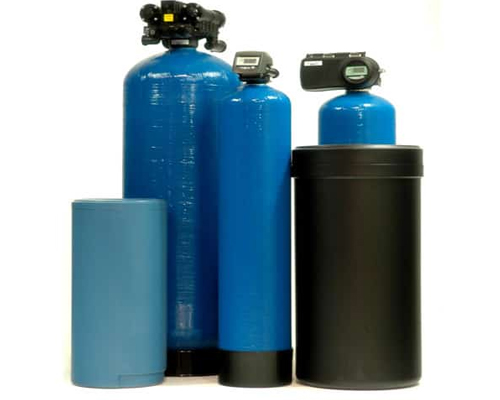Water softener for home in Chennai

What is a water softener?
A softener may be a whole-house filtration system that removes hardness-causing calcium and magnesium minerals from your water through a process called natural process. A softener addresses one among the foremost prevalent and devastating water problems: water. Water wreaks havoc on the fashionable home. Scale builds up in your pipes, clogging them and decreasing water pressure. Scale dramatically shortens the lifespan of appliances like dishwashers, coffee makers and ice machines. Water destroys predicament appliances. The upper the temperature of the water, the more calcium and magnesium will solidify and harden into solid deposits inside your predicament heater.
How do water softeners work?
Water softeners run through a process called natural process which eliminates calcium and magnesium from the water. When the water enters into the mineral tank, it flows through a bed of spherical resin beads. These plastic beads, usually made up of polystyrene, are charged with a sodium ion. The resin beads are anions, meaning they need a charge. The calcium and magnesium minerals have a charge, making them cations.
What are the components of a water softener?
1. The mineral tank
2. The control valve
3. The brine tank
what do water softeners remove?
Water softeners primarily remove calcium and magnesium ions from water. Calcium and magnesium are the 2 water hardness-causing minerals. The natural process process will furthermore attract and eliminate any charged ion (also referred to as a cation). This will include other minerals like iron and manganese.
Water softener remove iron?
Water softeners remove ferrous iron (dissolved iron) when it’s in low quantities and most of the iron is during a soluble state. Iron darkens the coloration of water and leaves visible stains on your toilet, bathtub, and in your sinks. Ferric iron (insoluble iron) is harder to get rid of with a softener.
Advantages of home water softening
• Prevents build-up of minerals (scale) on the within of pipes, fixtures, and predicament heaters.
• Lengthens the lifetime of some appliances.
• Reduces or prevents mineral spots on glassware.
Disadvantages of home water softening
• Can corrode your pipes. The corroded metal from the pipes can find yourself in your water. This will contribute to elevated lead and copper levels in beverage.
• Potential health effects from additional sodium.
• Negative impacts to the environment from salt use.
How do home softeners work?
Home water softeners, also called natural process units, are appliances that remove calcium, magnesium, and other minerals from beverage. Resin beads inside the softener trap the calcium and magnesium and exchange them for sodium or potassium. Once the resin beads become filled with calcium and magnesium, a highly-concentrated salt or potassium solution removes the calcium and magnesium from the beads.

Leave a Reply
Want to join the discussion?Feel free to contribute!